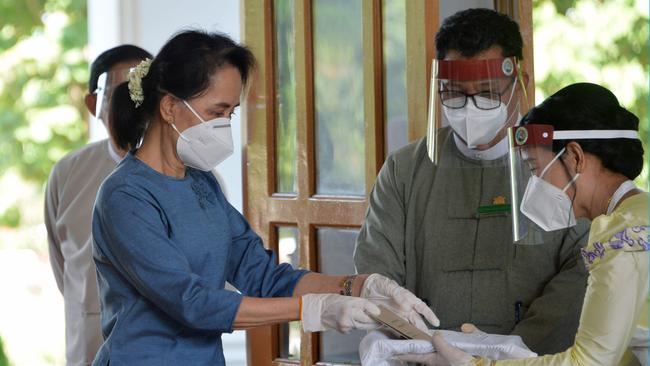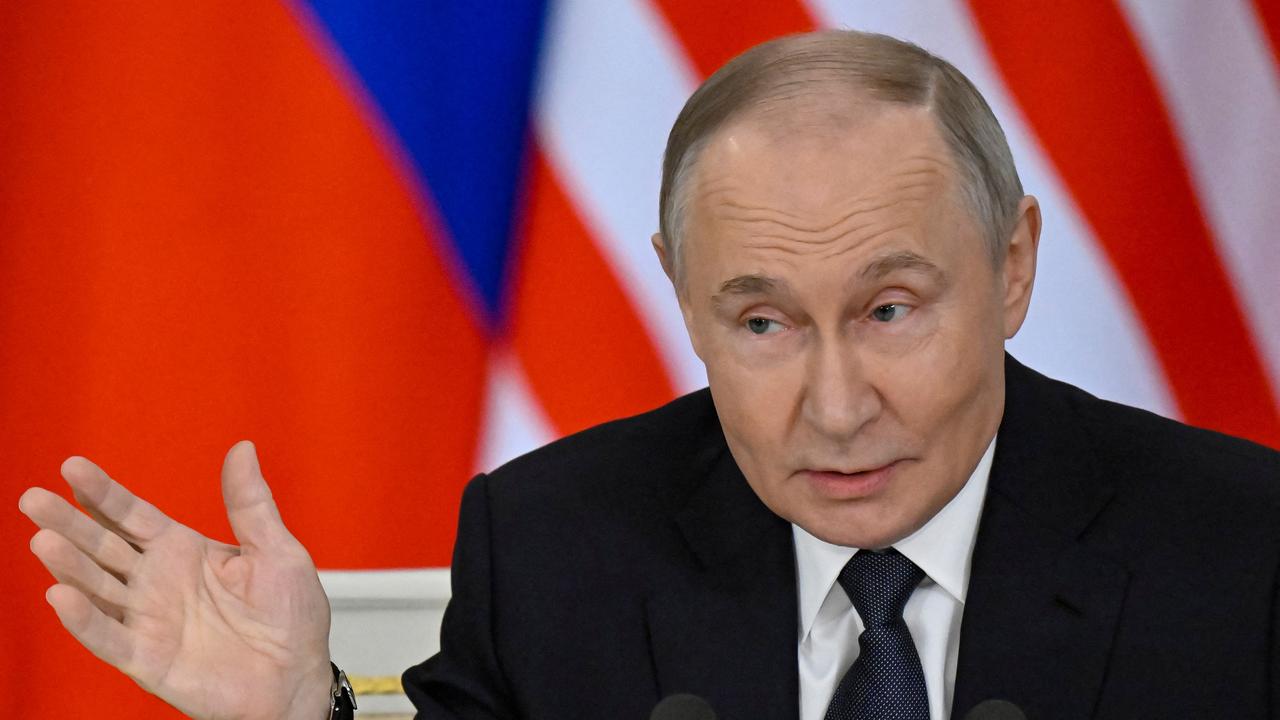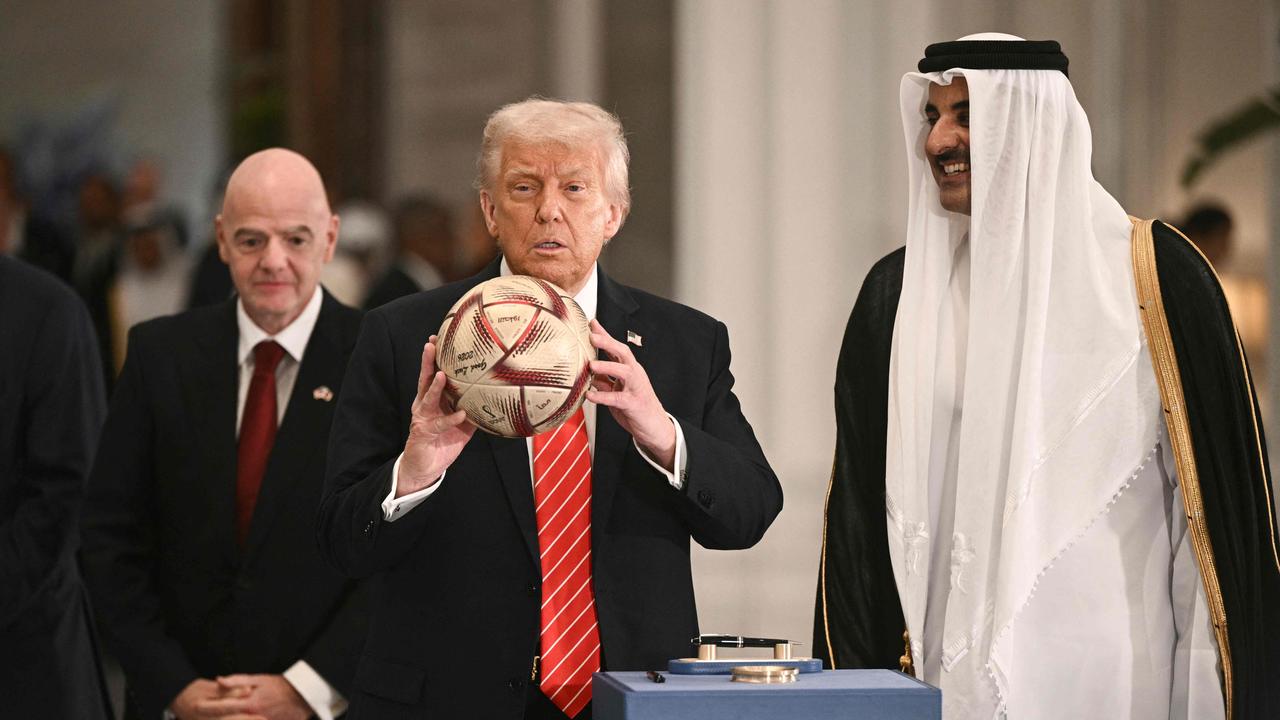Suu Kyi harnesses civil war to wage politics at polls
Aung San Suu Kyi’s ruling party pushes ahead with polls amid a sharp surge in COVID-19 infections in Myanmar’s heartland.

At least 2.6 million eligible voters from Myanmar’s ethnic minorities deemed to live in conflict areas have been locked out of the country’s third elections this Sunday, even as Aung San Suu Kyi’s ruling party pushes ahead with polls amid a sharp surge in COVID-19 infections in its Buddhist heartland.
The National League of Democracy-led government has refused to postpone elections, despite COVID-19 cases soaring in cities such as Yangon where it is tipped to win all 44 parliamentary seats up for grabs, and several dozen other parties calling for a postponement.
That has prompted a flood of criticism as well as concerns — including from the UN — over whether the weekend’s polls, expected to return Ms Suu Kyi and her NLD party to power, can be fair.
The UN Office of the High Commissioner for Human Rights warned this week that the new rules created further restrictions on people’s right to participate in the political process, and had significantly disenfranchised Rohingya and ethnic Rakhine people in Rakhine state.
The US Carter Centre, among international election monitors on Sunday, has also observed that Myanmar’s “commitment to uphold fundamental and inclusive principles for political representation and universal suffrage is an ongoing concern in this election cycle”.
More than 37 million people are eligible to vote in Sunday’s polls, which are seen as a referendum on the former human rights champion’s leadership as State Counsellor, and the performance of her NLD government, which won a historic election in 2015 that many hoped would usher in a new era of democratic freedoms.
Instead, the Myanmar government has been dogged by accusations of mismanagement, a heavy-handed crackdown on dissent through record prosecutions of journalists and activists, and even of becoming an apologist for genocide.
Ms Suu Kyi fronted the International Court of Justice early this year to defend an accusation of genocide related to military operations in Rakhine in which thousands of Rohingya civilians were killed, women and girls gang-raped, and their villages burned to the ground, forcing some 730,000 people to flee over the border to Bangladesh.
Bias was already built into the electoral system the NLD inherited, thanks to a constitution that reserves a quarter of all parliamentary seats for the military that ruled the Southeast Asian country for almost five decades and still controls key security ministries.
Last month, the Union Election Commission cancelled voting for some 1.5 million people, largely ethnic minority voters in areas that have previously supported smaller ethnic parties, citing continued unrest and safety concerns. It is unclear when or if voters in these areas will be allowed to vote.
David Mathieson, an independent Myanmar analyst, says the disenfranchisement of at least 1.5 million ethnic minority voters is at least as significant as the continued exclusion of 1.1 million Rohingya of voting age from the democratic process.
More than 70 per cent of Rakhine state — where several thousand people have died in ongoing clashes between the Buddhist Arakan Army and military forces in recent years — has been excluded from the polls, along with all eligible Rohingya Muslims inside Rakhine or in Bangladesh.
Critics point to the fact that some of the areas of fiercest fighting in northern Rakhine — which happen to be pockets of solid NLD support — will be allowed to vote.
Also excluded are whole or parts of townships in Kachin, Kayin, Mon and Shan states where ethnic insurgencies have simmered for decades and where strong ethnic parties lured the majority of votes in 2015.
Mr Mathieson told The Australian such decisions looked like “the most cynical and ruthless gerrymandering” on the part of the NLD.
“In the past five years, whatever support Aung San Suu Kyi had in ethnic areas has largely evaporated,” he said, although support within the majority Buddhist heartland has, if anything, increased in recent months.
“It’s going to be a very disordered election and it won’t be clean because of the cancellations and the incompetence radiating from a senior level in the UEC.”
The UEC — described by Myanmar’s independent Tampadipa think tank this week as “virtually an extension of the NLD” — has also been accused of censoring campaign speeches on state-owned media during the campaign in which traditional rallies and door-to-door campaigns have been largely curtailed by COVID-19 restrictions.
Human Rights Watch said last month at least four parties cancelled their broadcast speeches because of EC censorship, while the NLD-led government regularly used state media to “promote its policies and deemed successes in a report which concluded that systemic problems in Myanmar’s electoral process would prevent a fair election.




To join the conversation, please log in. Don't have an account? Register
Join the conversation, you are commenting as Logout